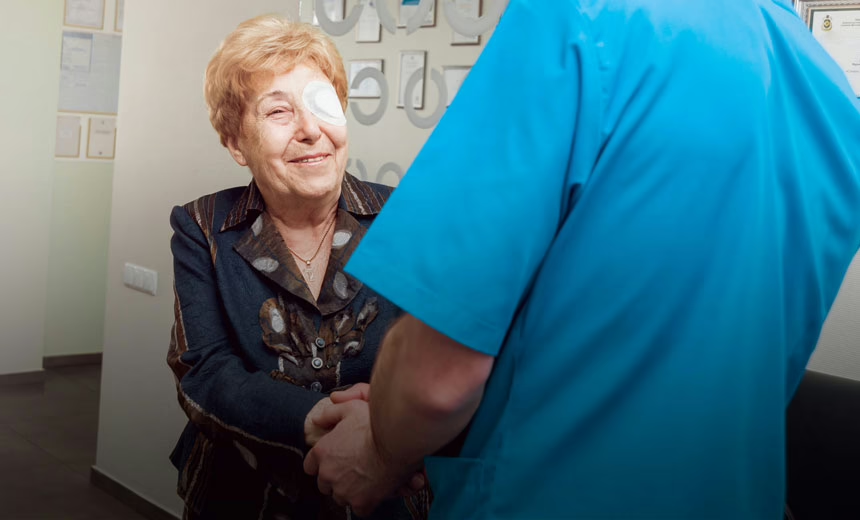"*" indicates required fields
After cataract surgery: a post-surgical guide to recovery and aftercare

Cataract surgery is a common procedure that is often performed in a day surgery, with the patient returning home within several hours of the operation. This article is designed to help you understand what to expect in the hours, days and weeks post-cataract surgery.
Immediately after cataract surgery
Before you leave the day surgery, you will be prescribed eye drops or other medication to prevent infection, reduce inflammation and control eye pressure. You will need to have a family member or friend with you to take you home. Once you get home, it is recommended that you rest your eyes and nap. Several hours post-surgery, most people are able to watch some television or look at a computer screen for a short period of time. Because cataract surgery is only performed on one eye at a time, you may notice an imbalance in your vision until the second eye is operated on (usually 1–4 weeks later).
Days after cataract surgery
It is normal for vision to be blurry in the beginning – your eye needs to heal and adjust. Vision will normally begin to improve within a few days of the surgery. It’s also normal for your eye to feel itchy and to experience mild discomfort for a couple of days – your doctor will ask you to wear an eye patch or protective shield at night to ensure you don’t rub your eye while you sleep. This discomfort should disappear after a few days.
Weeks after cataract surgery
While everyone is different, the average experience for the weeks following cataract surgery involves a gradual recovery of the eye. Adjustments in vision will occur for a few months after surgery.
Tips for post-cataract surgery recovery
Although most people can resume everyday activities 24 hours after cataract surgery, there are a few instructions that you will be asked to follow. They include:
- Don’t do any strenuous activities for a few weeks. Avoid rigorous exercise and heavy lifting.
- Don’t drive. The length of time after cataract surgery before you can drive depends on a number of factors – your doctor will tell you when it is safe to resume driving.
- Follow your doctor’s orders regarding any antibiotic and anti-inflammatory eye drops. These are important to prevent infection and inflammation and ensure proper healing. If you have difficulty in administering them, get a friend or family member to help you out.
- Stay away from dusty areas. It’s a great idea to have your house vacuumed and cleaned before surgery, as your eyes will be sensitive to airborne allergens such as dust.
- Don’t rub your eye. Eye rubbing is a quick way to develop a nasty infection. It’s never a good idea, even when you aren’t recovering from cataract surgery.
- Don’t swim. It’s best to avoid swimming or hot tubs for a week after surgery.
- Don’t wear make-up. Ask your doctor when you can resume doing so.
Symptoms to watch for after cataract surgery
If you experience any of the following symptoms, please contact your ophthalmologist immediately:
- Vision loss
- Pain that persists despite the use of over-the-counter pain medications
- Light flashes or multiple spots (floaters) in front of your eye
- Nausea, vomiting or excessive coughing
No information here is intended to substitute for advice from a qualified medical practitioner. If you or someone else you know are about to have cataract surgery, make sure you ask your ophthalmologist to outline the best steps for cataract surgery recovery.
More information about cataract surgery
Learn more about cataracts and cataract surgery, and find clinics that perform cataract surgery in New South Wales, Queensland, South Australia and Victoria.
Use the following link to find your nearest Vision Hospital Group day surgery location.
The information on this page is general in nature. All medical and surgical procedures have potential benefits and risks. Consult your ophthalmologist for specific medical advice.
Date last reviewed: 2023-05-25 | Date for next review: 2025-05-25
